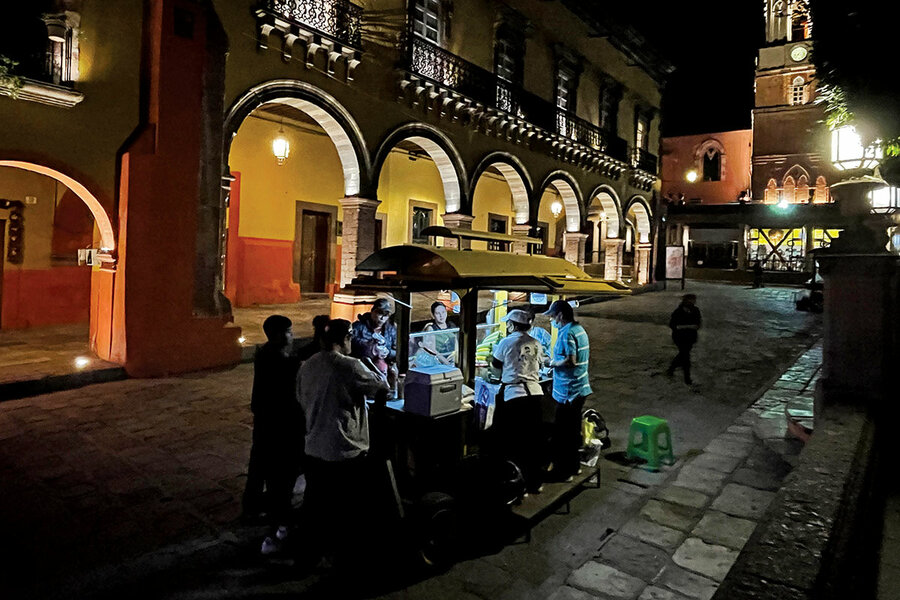In Mexico, street food brings communities together
| Mexico City
Tacos sold from baskets strapped onto the backs of bikes and steaming sweet potatoes served hot off the cart make up some of the unique sights and smells of Mexico’s vibrant street food culture.
The country has gained international attention for its fine dining in recent years, landing numerous restaurants on The World’s 50 Best Restaurants list. And traditional Mexican cuisine – defined not only for its iconic ingredients like heirloom corn, chiles, and beans, but also for the way in which the food is grown – was added to the United Nations’ list of intangible cultural heritage.
Despite this growing international attention, it’s the informal, homemade flavors that make food stalls and street vendors a mainstay of Mexican food.
Historians point to pre-Hispanic tianguis, or traveling markets, as the root of customary street dining here. The tradition was enriched at the turn of the 20th century when Mexicans flocked to cities during industrialization, and brought with them a demand for quick, affordable food – and flavors of the pueblos they left behind.
Today, most Mexicans, regardless of economic means, can point to a favorite taco counter or grilled-corn vendor. There’s delight in dining alongside strangers amid the bustle of daily city life.
Provecho!











